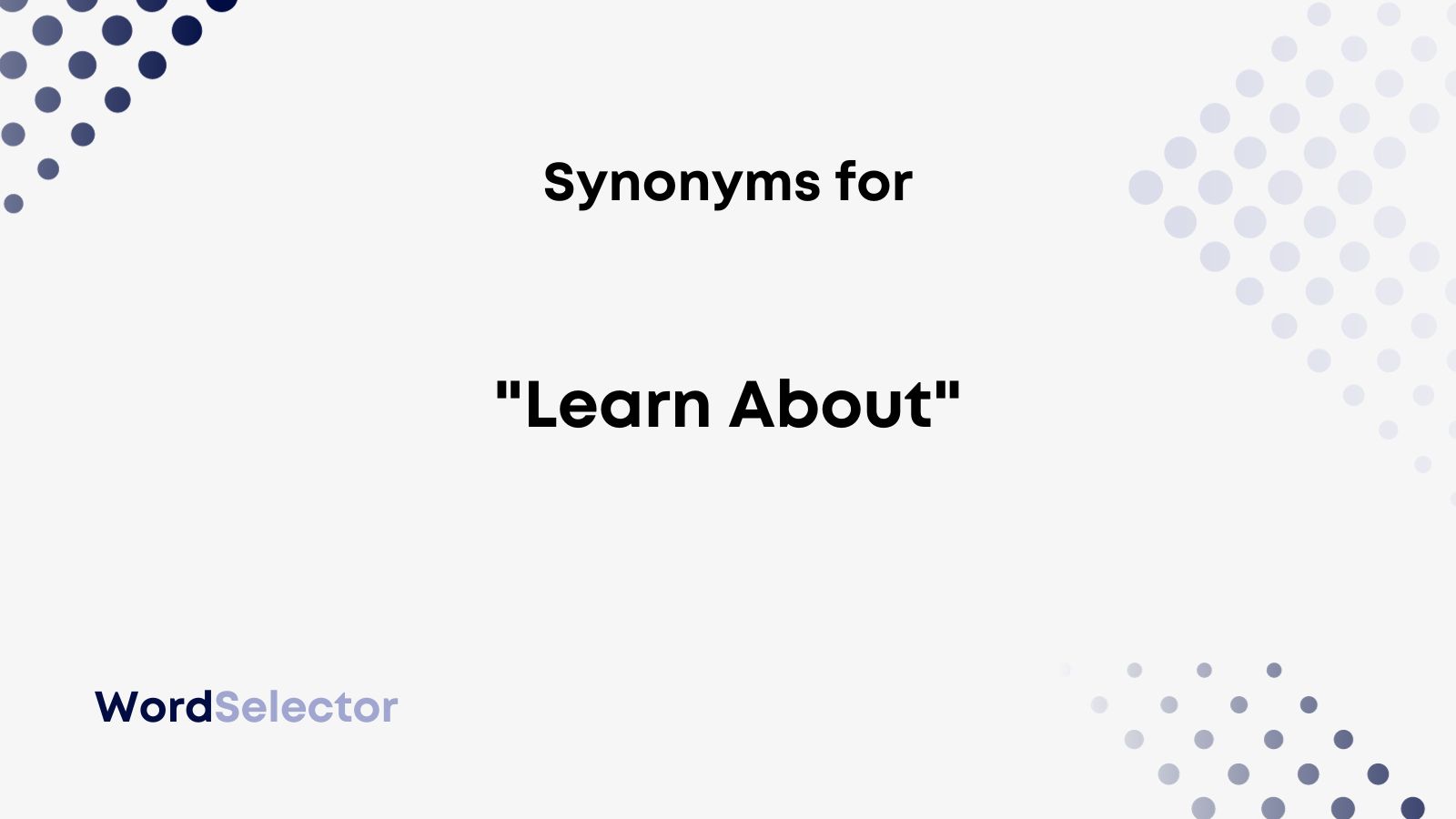Do you want to know the best way to say you can learn about something?
Perhaps you’re worried that “learn about” isn’t the most professional phrase to include in your writing.
Fear not! We’re here to help.
This article will teach you how to say “learn about” in different situations to help you mix things up.
Other Ways to Say “Learn About”
- Acquire knowledge
- Explore
- Gain insight into
- Familiarize yourself with
- Understand
- Discover
- Absorb information
- Obtain a grasp of
- Educate yourself on
- Comprehend
- Study
- Uncover
KEY TAKEAWAYS
- “Learn about” is correct and acceptable, but it’s overused and a bit repetitive in writing.
- “Acquire knowledge” works well as a formal synonym if you’re trying to mix things up professionally.
- Use “explore” as a one-word, informal alternative if that’s going to suit your tone better.
Keep reading to learn other ways to say “learn about.” We’ve explained more about the best formal and informal alternatives to show you what’s going to work well in your writing.
Alternatively, you can read the last section to find out if the phrase is correct. Then, you’ll know whether it’s worth including it in your writing next time.
Acquire Knowledge (Formal)
It’s good to start with “acquire knowledge” as another way to say “learn about.”
Generally, it’s going to work best in professional contexts. After all, it’s a good formal synonym that shows you’re looking to gain more knowledge about something.
For the most part, you can use this when emailing employees. It shows them you’d appreciate it if they could learn about something and get back to you when they have more information.
Check out the following email sample to learn a bit more about how it can work:
Dear Melissa,
I’d like for you to acquire knowledge about this system.
Then, please get back to me to let me know what you’ve learned about how we can use it.
Best wishes,
Sam Scoffield
It’s also good to use this in an essay. Generally, it shows you want to learn more about something, and it’s a good way to express that directly to the reader.
Here’s a helpful essay sample to show you more about what we mean:
I’d like to acquire knowledge about this process. Otherwise, I won’t be able to give results that I trust quite as much.
Explore (Informal)
Try using “explore” as an informal alternative. It’s a great opportunity to mix things up and show that you’re looking to be more conversational with the reader.
For instance, you can use it when talking to colleagues. It’s a good way to get in contact with them and let them know that you’d like to explore new options and get more information.
So, you can check out the following sample email to learn more about how to use it:
Dear Adrian,
I think we should explore this idea together because it sounds promising.
Let me know what you think and when you’re free for a meeting.
Best regards,
Jacob Sanchez
It’s also usable in an essay. You might want to use it to explain how you came to learn some of the things you’ve done (for instance, if you’re writing an essay about your past experience).
Also, you can review this essay sample to learn more:
I managed to explore quite a few alternatives in my time. That’s why I’m confident with the information I have now.
Is It Correct to Say “Learn About”?
It is correct to say “learn about.”
It’s great to use in most situations (both formal and informal). Therefore, it’s a very versatile phrase that you’ll find has a use in just about any context.
However, be careful using it too often. After all, it can quickly become repetitive and overused if you’re not careful with it.
Feel free to review this email sample to learn a bit more about how it works:
Dear Michelle,
I’d like you to learn about this situation and get back to me ASAP.
It’s clear we have to stay ahead of it if we’re going to progress here.
Yours,
Clark Bennett
Don’t go anywhere without bookmarking this page, though! That way, you can always come back here when you want to remind yourself what to say instead of “learn about.”

